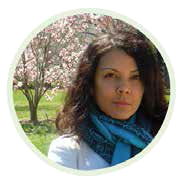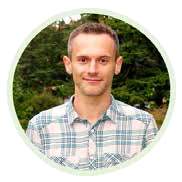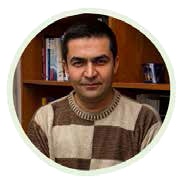Loraine Bacchus (from the United Kingdom), Marcin Smietana (from Poland) and Elvan Ceyhan (from Turkey) benefited from International Outgoing Fellowships for Career Development (IOF). What did they learn from this experience?
 Lorraine Bacchus |
 Marcin Smietana |
 Elvan Ceyhan |
About our Fellows
Loraine Bacchus’s project explored the social and ethical aspects of using mobile health – mHealth – technology to deliver DOVE domestic violence intervention during perinatal home visits in urban and rural areas of the USA.
Marcin Smietana currently works on global reproductive tourism and focuses in particular on surrogacy and egg donation among European gay father families in the United Kingdom (regulated by the State) and in the USA (free market).
Elvan Ceyhan works on a project called “Pattern Recognition in High Dimensional Data (PRinHDD)” (in mathematics).
About IOF
What is an International Outgoing Fellowships for Career Development (IOF)?
The Marie Curie International Outgoing Fellowships for Career Development (IOF) are open to experienced researchers from the European Union or Associated Countries (e.g. Iceland, Norway, Balkan countries, Turkey, Israel, Moldova and the Faroe Islands). The action enables European researchers to receive training and to acquire new knowledge in a research organisation in a non-EU Country.
The host organisation can be a university, a research centre or a business established and located in a non-EU country. The return phase has to be spent in an EU or Associated country.
When applying for an IOF, the researcher has to work closely with his/her return host organisation. If successful, he/she will receive up to three years of support (covering the outgoing and return phases).
Projects are classified into: chemistry, economic sciences, information science and engineering, environment and geosciences, life sciences, mathematics, physics, social sciences and humanities.
What did our Fellows learn?
How did they get information about IOFs? All three Fellows were familiar with the Marie Curie Actions, as they already heard about them from colleagues or at university. Bacchus went further by attending a presentation about the Seventh Framework Programme FP7 which she found “very informative in terms of how to write a successful application for the IOF”.
At which point in their career did they apply? Ceyhan was in the “consolidation” phase of his career when he decided to apply for an IOF, whereas Bacchus was an experienced researcher of more than 10 years. Smietana decided to apply for an IOF before he completed his Ph.D. He says, “After my PhD experience of working in a few different research projects of my research group, I liked the idea of creating a more independent though collaborative research project, rather than being hired for an already designed specific study; I also wanted to check out some new life prospects in a different country”.
How did they choose their host organisation and host country? A combination of different factors were at play. Ceyhan identified the Statistical and Applied Mathematical Sciences Institute (SAMSI) in the USA as it provides quality programmes in line with his research activities. For Bacchus, it was important to share her interests with an inspirational researcher, so she decided to contact Professor Linda Bullock at the school of Nursing at the University of Virginia and asked her if she would be her mentor. “I chose the UK, one of the only two EU countries that permitted altruistic surrogacy, and the US, where many Europeans were travelling for commercial surrogacy, particularly to California,” says Smietana.
How did they prepare their application? It took between one and three months for our Fellows to prepare their IOF applications. Three months was about right for Bacchus “I conducted a number of Skype calls and exchanged e-mails with Professor Linda Bullock to discuss ideas. However, once we developed a clear outline of the research and training component, it took just over three months to write the application.” For Smietana, one month was a little tight: “This was a little too late and a little stressful, particularly because of administrative and electronic platform issues”. However, there is more to preparing for a project than writing a proposal. For Ceyhan, “the mental preparation took more than a year”.
How did they organise their work? During his outgoing phase, Ceyhan took the opportunity to attend workshops, lectures and seminars, and participated in working groups and discussions at his host organisation. These helped enrich his research. Bacchus developed a work plan which contained clear outcomes and time frames. She managed to have regular meetings with her mentors and was integrated as a member of the DOVE research team. As Smietana was conducting research alone most of time, he considered it important to take part in working groups and in a few academic events to find inspiration.
Which obstacles did they encounter? During the application process, it took some time for Smietana to understand the functioning of the electronic platform that researchers have to use to submit their proposal. With the help of his host organisation and friends, he was able to overcome the difficulty. For Bacchus, the main problems were related to organising her work “The interviews with women were conducted in their homes in remote rural areas and in high crime urban areas. Therefore, I was accompanied by a DOVE researcher or hired a student researcher on all field trips as a safety procedure.” She also spent more time than expected on data collection activities and on attending trials. She recommends to future applicants that “any additional work that is not related to the Marie Curie fellowship should be kept to a minimum”. Ceyhan unexpectedly had to revise his research objectives and work plan after starting his project.
Did the funding cover all their needs? All three of our Fellows agree that the funding covered or is covering their needs. For Ceyhan, funding dedicated to mobility and training could however be increased. Smietana encountered difficulties when he moved to the USA as the accommodation is far more expensive than it is in Spain (his previous country of residency). What’s more, he got married after his application but the coordinating host considered him as single and this situation generated other financial challenges. The IOF covers the return period as well.
Is it worth it? For Ceyhan “The IOF is a great opportunity and I received it at the right moment of my career.” Bacchus echoes this: “Working in a new context was inspirational and helped me to develop new ideas for future research studies.” Smietana also strongly recommends applying for an IOF and adds “Even if it may seem somewhat complex, it is really worth it.”


